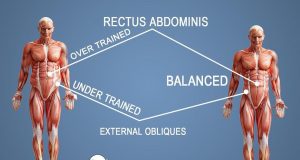Emotional eating is a problem that plagues many and it is an all too common way to dealing with life’s problems.
The modern world offers so much variety of addictive foods, such as, sweets, chips, ice cream and others that bring euphoria, calm, peace and comfort that many fall into the trap of mindless eating whenever they feel sad, depressed, bored, lonely or stressed.
This habitual reaction to particular trigger feelings results in a vicious cycle that never really solves the original problem, but, actually piles more on top of it.
Many who eat behind emotions report feeling guilt and shame for binging on unhealthy foods and eating to the point of being nauseated.
Weight gain is another side effect of this unhealthy coping skill, and brings with it its own variety of emotional and physical problems.
Learning positive coping skills and breaking the habit of emotional eating takes, awareness, understanding and learning healthy coping skills, and one of the tools that helps this process is positive affirmations.
What Are Positive Affirmations
Positive affirmations are statements made as if something is already true or has already happened in an attempt to reprogram the mind to reach a specific goal.
The human brain is powerful, and it is what drives human behavior, and so positive affirmations can be very effective in changing those behaviors that do not serve us in positive ways.
Positive affirmation and motivational statements can go a long way to helping emotional eaters break the self-destructive habit of eating to cover feelings.
How Affirmations Help Emotional Eating
This works in two ways and the end goal is to reprogram the mind and thought processes and therefore facilitate a change in behavior.
- First, it brings awareness of the problem to the forefront. And, really without awareness emotional eating can never be stopped, as typically it is a mindless act, driven by habit, which for many means they may not even be aware that they do it.
- Second, repeated affirmations can help to replace habitual thought patterns in regards to food and change perceptions about food, which can go a long way to stopping emotional eating.
For example, if I believe that donuts help me feel better when I feel sad, then I will always reach for that donut when that feeling hits and without hesitation. But, on the other hand, when I come to realize that the feelings of euphoria that I feel from that donut is a temporary band aid that is not a solution at all, and that once I eat it, I still feel sad, and maybe even sadder, then I will take pause and break the habit.
Affirmations can go a long way to modifying behavior, and when done consistently along with learning healthy coping skills to deal with emotions that are typically avoided with the use of food can bring healing, piece of mind and better emotional and physical health.
30 Affirmations To Stop Emotional Eating
- I only eat when I am physically hungry.
- Eating is for sustenance, and not for anything else.
- When I am bored I workout or read a book.
- When I am sad I call friends and talk about my problems.
- Food is not my comfort.
- I am powerful, strong and able to deal with my emotions.
- I am dealing with comfort eating.
- I control what, when and how I eat.
- I am aware of what food I put into my body.
- I can easily say no to junk food, I am in control.
- I have the strength and power to stop emotional eating.
- I have healthy coping skills for my emotions, food is not one of them.
- I have regular meal times.
- I can face anything that comes my way.
- When I am stressed I exercise.
- I am developing a healthy relationship with food.
- I have respect for my body.
- I have respect for my feelings, I take care of them.
- I am not a victim of comfort eating.
- Food will not heal my feelings.
- Food is not a friend, it’s sustenance.
- I feel every day and it feels good.
- I love all feelings, they are part of who I am.
- I love myself, I love to feel, I am alive and living!
- I deal with my feelings every single day.
- I am aware of every bite I take each and every day.
- I can separate physical hunger from emotional hunger.
- I know the difference between healthy eating and comfort eating.
- I am responsible for my good health.
- I listen to my body and know when I am really hungry.
 Crossfit Blogger News, Information and Bestselling Products
Crossfit Blogger News, Information and Bestselling Products




